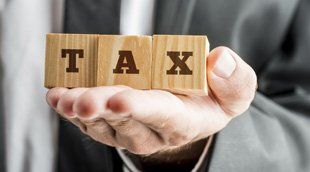May 2023
As we approach the end of the financial year, there are several important updates that taxpayers should be aware of to ensure compliance with tax regulations. In this blog post, we summarize three key updates: the last chance to claim deductions under temporary full expensing, the residential investment property loan data-matching program, and the guidelines for calculating electric vehicle home charging rates.
- Last Chance to Claim Deductions under Temporary Full Expensing: The temporary full expensing measure, available for the 2021, 2022, and 2023 income years, is set to end on 30 June 2023. Under this provision, businesses with an aggregated turnover of less than $5 billion can claim a deduction for the full cost of eligible new assets, including costs of improvements and eligible second-hand assets. Taxpayers can choose to opt out of temporary full expensing for some or all of their assets and claim deductions using other depreciation rules by notifying the ATO in their tax return.
- Residential Investment Property Loan Data-Matching Program: The Australian Taxation Office (ATO) will acquire residential investment property loan data from authorized financial institutions for the 2021/22 through to 2025/26 financial years. This data includes client identification details, account details, transaction details, and property details. The ATO will use this information for education, online services, data analytics, insights, and compliance activities to ensure tax and super obligations are met and to detect fraud against the Commonwealth.
- Electric Vehicle Home Charging Rates: The ATO has released draft guidelines outlining the methodology for calculating the cost of electricity when an electric vehicle (EV) is charged at an employee's or individual's home. Employers and individuals who meet the criteria can choose to use the methodology outlined in the draft guidelines or determine the actual cost of electricity. The draft guidelines provide an EV home charging rate of 4.2 cents per kilometer for the FBT or income year commencing on or after 1 April 2022. However, if charging costs are incurred at a commercial station, a choice must be made between using the EV home charging rate or the commercial charging station cost.
To read more download our monthly practice update below
Business Advisory
We offer tailored and well-grounded advice to help your business realise its potential.
Audit & Assurance
Our specialist audit services give you confidence and reliability in your numbers.
Accounting & Tax Compliance
We offer a range of services to help relieve you of your accounting and tax compliance matters.
Liability limited by a Scheme approved under Professional Standards Legislation.



